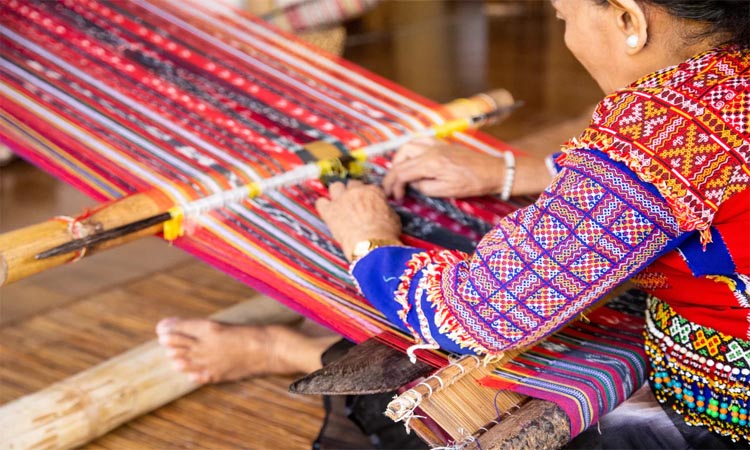News Flash

RANGAMATI, Sept 09, 2025 (BSS) – Like many women in Chattogram Hill Tracts (CHT) Santana Tanchangya started her business by making traditional hill clothes, pinon-hadi, with her own efforts, is gradually overcoming hardship of her livelihood.
Santana lives in Duchhari Para, Ward No. 3, in the remote Harinchara area of Kaptai Union in Rangamati.
The creation of pinon-hadi is a central part of the heritage and economy, with women in CHT weaving the garments for personal use, for their families, and for commercial sale, which helps to support them and their communities.
Although business is not always booming due to being a remote area, Santana Tanchangya spends a very busy time making pinon-hadi during festivals.
Santana told BSS the story of her family's life and struggle. Santana's father, Shel Kumar Tanchangya, was a farmer by profession and worked on a daily wage basis in the yard of another.
When he did not work, he had to stay at home. Mother, Lakshmi Devi Tanchangya, was a housewife.
Santana has three sisters. She is the eldest of them all. The middle sister, Dayabala Tanchangya, is studying at Kaptai Karnaphuli Government College. And the younger sister, Adarbala Tanchangya, has not completed her primary school education.
She passed her SSC from Chandraghona Paharika High School in 2016 and got admitted to Rangunia Government College. However, her education life was interrupted until HSC due to family problems, said Santana.
At that time, Santana dreamed of becoming self-reliant by meeting her family's needs. And then she started the pinon-hadi business together with her three sisters.
Santana said that they do this work together with three sisters. It takes at least 2 weeks to make a pinon. Locally, a pinon is sold for four to five thousand taka. If it is taken outside, it is sold for six to seven thousand taka. They can make at least 6 to 8 pinons a month.
Currently, they meet their family needs and also cover their own expenses by doing this pinon-hadi business.
However, Santana said that if she had financial stability, she could have expanded the scope of her pinon-hadi business a little more.
She also said that making pinon is a very hard work. Capital is also needed. If they get financial support from the government or private cooperation, they will be able to go further.
Headman of Bhaijatali Mouza No. 119, Thoai Aung Marma, told BSS that to meet the family needs and stand on their own feet, Santana and her two sisters of Duchari Para have started a small business including pinon-hadi weaving, which is very commendable. If they try in this way, it is possible to eliminate unemployment and become successful entrepreneurs. He sought government support to make their initiative a success.